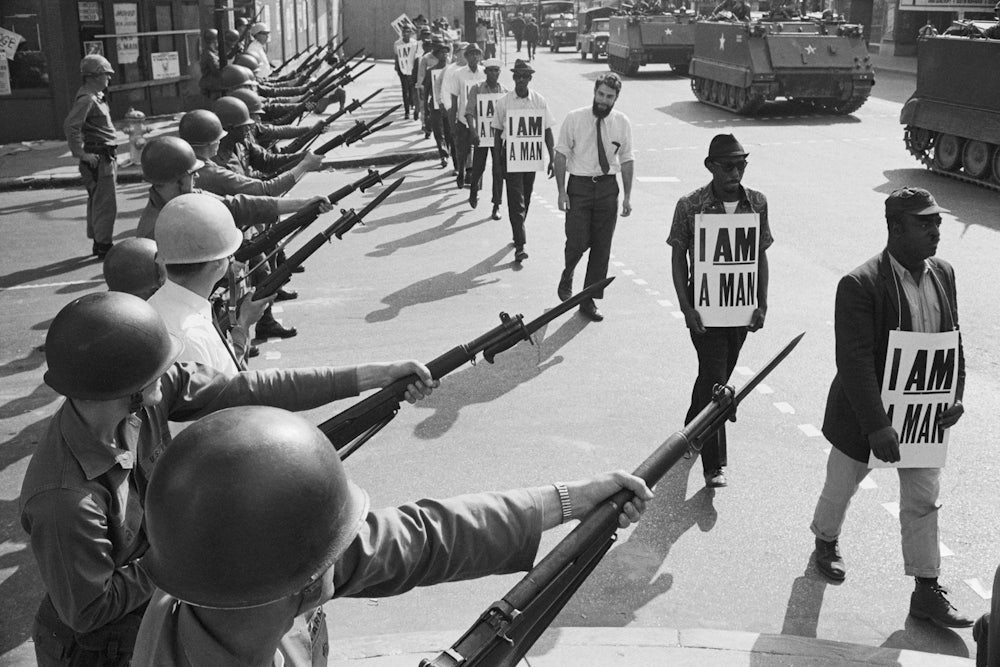Back in March, Senator Ted Cruz used his time to question Ketanji Brown Jackson during her confirmation hearings to narrow in on what is sure to be one of the GOP’s core talking points for 2022: Democrats are too tied to radical politics over racial disparities. Cruz alleged that Jackson, now the first Black woman to serve on the Supreme Court, was unqualified because she sat on the board of a D.C. private school whose curriculum is “overflowing with critical race theory.” He proclaimed this as he waved a pile of books he deemed too radical to teach children.
As the 2022 midterm elections approach, a common axiom abounds in political punditry: Democrats will be doomed by capitulating to the demands of the “far-left,” “radical” faction of their constituents—with barely coded racial language that the party has become too captivated by Black activists. This prophecy is evoked using euphemisms, but its horsemen are familiar villains. Defund the police, wokeness, critical race theory, and Black Lives Matter are foretold to be harbingers of political calamity. This is heritage for American politics, as society tends to render policy and slogans aimed to uplift Black people as de facto radical and thus politically ruinous. But it’s not the substance of the political asks that are radical, it’s the audacity of Black people to have a transformative body politic.
“If you go back and look at how they portrayed and painted every Black political leader and movement in the history of this country from Martin Luther King Jr. to Stokely [Carmichael], they were always radical” said Cornell Belcher, a Democratic pollster and author of A Black Man in the White House: Barack Obama and the Triggering of America’s Racial-Aversion Crisis. “It’s perfect to use as a vehicle for driving fear and angst about the other.”
Once Blackness enters the political realm, empathy falters. A large number of white people are victims of police brutality, a rigged economy, and exorbitant health care costs, but, when the corrective is in the name of Black people, redress becomes incoherent. In the same way the movement of Black people into a neighborhood depreciates the value of homes, the movement of Black demands into political spaces depreciates the legibility of the corrective—even if white Americans stand to benefit.
Black Americans haven’t asked for anything that doesn’t already exist for white Americans in some capacity. Research from 2019 by Third Way, a center-left think tank, shows that the top two priorities for Black Americans are affordable housing and lowering the cost of health care. This is not different from white Americans. A 2022 Pew poll shows that white Americans also prioritize the economy and reducing health care costs.
A chasm appears, however, when race is explicitly considered. The same Pew poll showed that 66 percent of Black adults said “addressing issues around race should be a top priority,” compared to just 27 percent and 47 percent among white and Latino respondents, respectively. It is untenable for Black Americans to separate race from any issue, which means it is untenable to separate race from correctives.
So strong is the angst of the “radical” Black other, white people will sacrifice themselves to ward off proximity to Blackness. Jonathan Metzl’s 2019 book, Dying of Whiteness, documents how the politics of racial resentment harms white Americans while progressive policies are smeared as radical Black takeovers. “Politics are deeply tied to identity,” Metzl told me. In his book, Metzl argues that white Americans’ investment in maintaining an imagined place atop a racial hierarchy “harms the aggregate well-being of U.S. whites as a demographic group.”
“In the rural South, if you want to get people against something,” Metzl told me, “there are three things you have to say: government intrusion into your life, freedom, and liberties that you’re going to lose, and Black people are going to cut in front of you and take your resources.”
This dynamic permeates American history. From 1889 to 1918, at least 3,224 people were killed by lynching mobs, according to one study. Black Americans were disproportionately the victims (78 percent), but white people (22 percent) were not spared from mob violence. In 1918, Republican Representative Leonidas Dyer of Missouri introduced a bill to establish lynching as a federal crime. Despite the danger lynching presented to all of society, Southern politicians mobilized against the measure, saying the bill was a capitulation to “negro agitators” and stoking the fear of Black rapists.
Representative John Tillman, a Democrat from Arkansas, called the scope and purpose of Dyer’s anti-lynching bill “radical,” and said the bill would “destroy all that is left of local self-government and State sovereignty.” The fear of an imagined Black criminal transcended the protection of white Americans from lynching. Tillman, despite saying “the law should be supreme,” viewed protecting the lives of Black Americans from white mobs as radical, and permitted the sacrifice of innocent white Americans in general to lynch Black Americans specifically.
Today, the specter of Black, radical “far-left” politics amputating the moderate arm of the party looms over Democrats. But Democrats can’t retreat from their most loyal voting bloc entirely or explicitly. Instead, headlines from the left like “WANT TO GET TRUMP RE-ELECTED? DISMANTLE THE POLICE” bait white anxiety with a political argument and switches to a racialized narrative to disorient the needs of Black Americans into purgatory.
The perception of defund the police as a radical doctrine might come from its attempt to interrupt what Alex Vitale, author of The End of Policing (one of the books Cruz used as a prop at Jackson’s Supreme Court confirmation), called a partisan consensus to “embrace neoliberal austerity politics.”
“In a way, it is very radical,” Vitale told me of the slogan. “Tax breaks for the rich, real estate deals, deregulation, have left cities broke, so they can’t have mental health services, they can’t have drug treatment. And then they use policing to address the consequences of those shortfalls. Defunding the police is calling that whole arrangement into question.”
It is true that the slogan does not poll well. But that does not make the underlying ideas radical; rather, it illuminates an ineptitude of Democratic politicians to separate arguing a slogan from arguing policy. According to a Reuters/Ipsos survey, 76 percent of people were in favor of redirecting money from policing “into better officer training, local programs for homelessness, mental health assistance, and domestic violence.” More than eight in 10 Black adults favor permitting citizens to sue police officers to hold them accountable for misconduct, as do 75 percent of Latino and 60 percent of white adults.
It is not surprising that Black Americans do not support the broader message of “defund the police”—even if two-thirds of Black Americans do not trust the police to treat them equally. Yet conservatives have exploited the potency and pervasiveness of anti-Blackness to turn the activists’ slogan into a dog whistle attack against liberal efforts to reform the carceral system.
“Republicans are the ones outside of the mainstream of American political values,” Belcher said, “not Democrats.” According to Belcher, the people who want to move away from “identity politics” are the same ones who did not think “Barack Obama had a chance.” They might also belong to the faction Martin Luther King Jr. warned about in a 1964 article entitled “NEGROES ARE NOT MOVING TOO FAST.”
“A section of the white population,” King wrote, “perceiving Negro pressure for change, misconstrues it as a demand for privileges rather than as a desperate quest for existence. The ensuing white backlash intimidates government officials who are already too timorous, and, when the crisis demands vigorous measures, a paralysis ensues.”
The litmus test for political expediency is rarely oriented to the desires of Black Americans. This is ironic, because any credibility the Democrats have as the socially liberal party comes from its so-called radical faction. Where would this country be if it were not for radicals like Martin Luther King Jr., Malcolm X, Ida B. Wells? Where would America be now if it were not for Black Americans saving the country from a second term of Donald Trump as president?






